Keywords: Gas
There are more than 200 results, only the first 200 are displayed here.
-

INTERNATIONAL
Ypres' human collateral damage and displacement of those forced to flee is investigated at Ypres' In Flanders Fields Museum. The museum handbook parallels Belgian's WWI refugee exodus with the plight of refugees today fleeing Syria, Afghanistan and Africa. It's one way In Flanders Fields Museum is adopting a forward-looking approach to commemoration, pulling World War I's messages and themes out of 1918 and propelling them into the 21st century.
READ MORE 
-

INTERNATIONAL
- Justin Glyn
- 07 April 2017
13 Comments
The pictures coming out of Khan Sheikhoun are horrific. Children foaming at the mouth, some with terrible head wounds. No wonder the reaction of the world has been outrage. 'Assad must go' has been revived as a catchphrase in the West. We are right to be appalled. Yet several features about the reported sarin attack in Syria's Idlib Governorate should give pause in the current rush to judgment. Firstly, while you wouldn't know it from much of the media, the facts themselves are contested.
READ MORE 
-
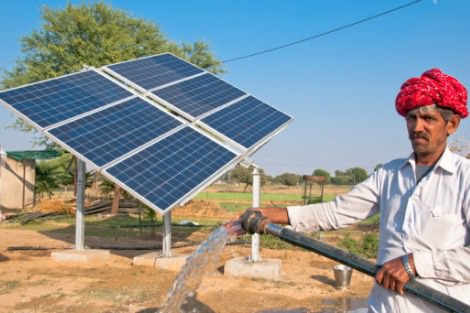
ENVIRONMENT
- Ketan Joshi
- 06 April 2017
1 Comment
A 2015 cartoon by Bill Leak depicts an Indian family squatting, smashing solar panels to pieces. A woman chews on a shattered piece of glass, and a man attempts to smear mango chutney onto glistening shards. The initial reaction centred around the racist depictions of Indians. But it also represents a broader and worrisome attitude towards global energy politics, that assumes idiocy in developing countries, combined with a push to burden them with the dangerous wares of a dying industry.
READ MORE 
-
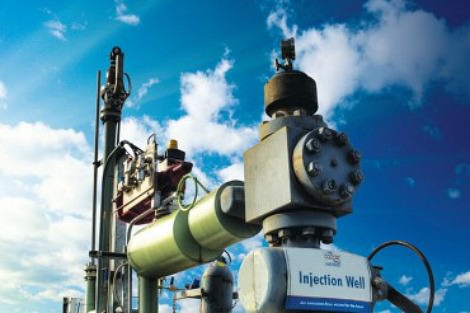
ENVIRONMENT
- Greg Foyster
- 31 March 2017
5 Comments
About 40km from Warrnambool in south-western Victoria is Australia's first demonstration site for storing carbon dioxide pollution deep underground. In photos, it doesn't look like much - a few water tanks, sheds and pipes in a brown paddock - and yet plans to meet the internationally agreed climate change target are betting on the success of projects like this. This isn't a fringe strategy anymore. It is a big part of the mainstream, politically preferred approach to address global warming.
READ MORE 
-
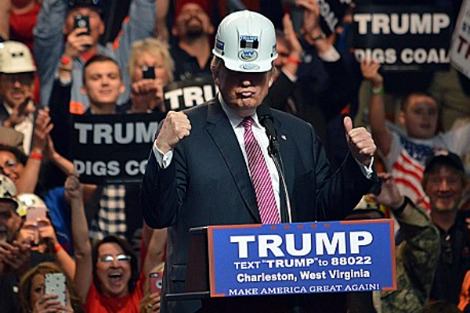
INTERNATIONAL
- Fatima Measham
- 30 March 2017
5 Comments
This week, Trump signed the Energy Independence executive order, which amounts to open slather for oil drilling and coal companies. It turns off policy settings made under Obama, including a moratorium on coal leases on federal land and methane emissions limits in oil and gas production. It's a colossal setback, though it could play well in coal country. While Trump may declare he is '(cancelling) job-killing regulations', people will eventually find it is not emissions-related regulation that is killing jobs.
READ MORE 
-

ARTS AND CULTURE
- Allan Padgett
- 01 March 2017
Notes that humans cannot hear include the sound of thylacines crying in a van diemen forest, a dodo's plaintive shuffle on a nearshore kiwi island, a mammoth's woolly orgasm on an ecstatic arctic tundra, an esperance dog weed's silent transpiration, the rumbles of a gastric brooding frog giving birth by burping - these things are far too late for caring. Things we need to see and taste include the surging milk of human kindness, the euphoric rainbow of random caring - these would make a nice day nicer.
READ MORE 
-
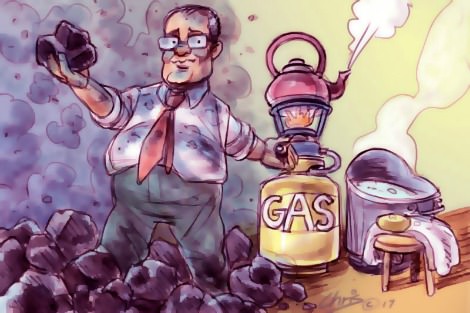
ENVIRONMENT
- Greg Foyster
- 23 February 2017
10 Comments
Australia's most politically contentious rock is back in the limelight after Prime Minister Turnbull spruiked 'clean coal' power stations in early February, and Scott Morrison brought a lump of the stuff to parliament. It was a juvenile act, but an effective one: here we are again, still talking about coal weeks later, when the real energy policy battle is over gas. But that's how it goes - a pitch for a new coal-fired power station in Australia is actually a clever exercise in repositioning gas as a greener fuel.
READ MORE 
-
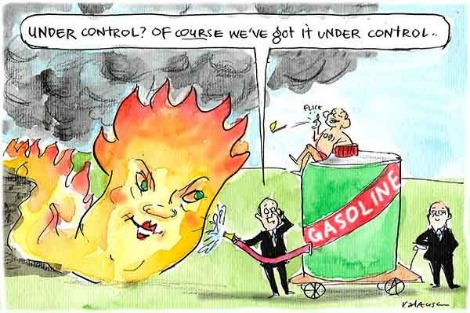
CARTOON
- Fiona Katauskas
- 14 February 2017
3 Comments
This week's offering from Eureka Street's award winning political cartoonist.
READ MORE 
-

AUSTRALIA
- Ann Deslandes
- 06 February 2017
7 Comments
The recent viral footage of 'alt-right' spokesperson Richard Spencer taking a punch to the chops caused considerable debate. There is no doubting the moral clarity that non-violent resistance achieved in the civil rights movement led by Martin Luther King and the Indian independence movement led by Mahatma Gandhi, and the real result of justice for African American and Indian people. When it comes to the odd individual act of public pushing and shoving, though, asking 'Is it okay?' is a red herring.
READ MORE 
-
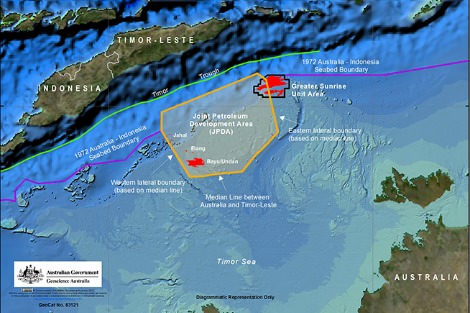
INTERNATIONAL
- Frank Brennan
- 17 January 2017
17 Comments
Without any media fanfare, Foreign Minister Julie Bishop published a statement on 9 January 2017 announcing that Australia and Timor Leste had agreed to terminate the 2006 Treaty on Certain Maritime Arrangements in the Timor Sea. This news is more welcome to the Timorese government than to the Australian government. But the uncertainty created by this Timorese win might in time impact more adversely on Timor than on Australia. Only time will tell.
READ MORE 
-
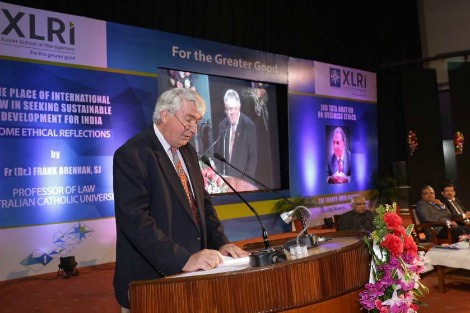
ENVIRONMENT
- Frank Brennan
- 02 December 2016
9 Comments
Neither India nor Australia can go it alone when confronting a global issue such as climate change. India cannot disregard the effects on other nations when it adopts laws and policies for alleviating the poverty of the poorest of the poor. Australia cannot disregard the effects on other nations when it considers restricting the availability of resources for export such as coal which might help provide electricity for the world's poorest citizens.
READ MORE 
-

ENVIRONMENT
- Frank Brennan
- 28 November 2016
'No matter what the economic, political and legal problems confronted by modern day India, our response can be improved by an application of the key principles and norms developed in the international law of trade and human rights, helping to enunciate the realm of law, regulation and political accountability, enhancing public scrutiny providing the right environment for doing business.' Frank Brennan presents the 25th JRD Tata Oration, Xavier School of Management, Jamshedpur, India, 26 November 2016.
READ MORE